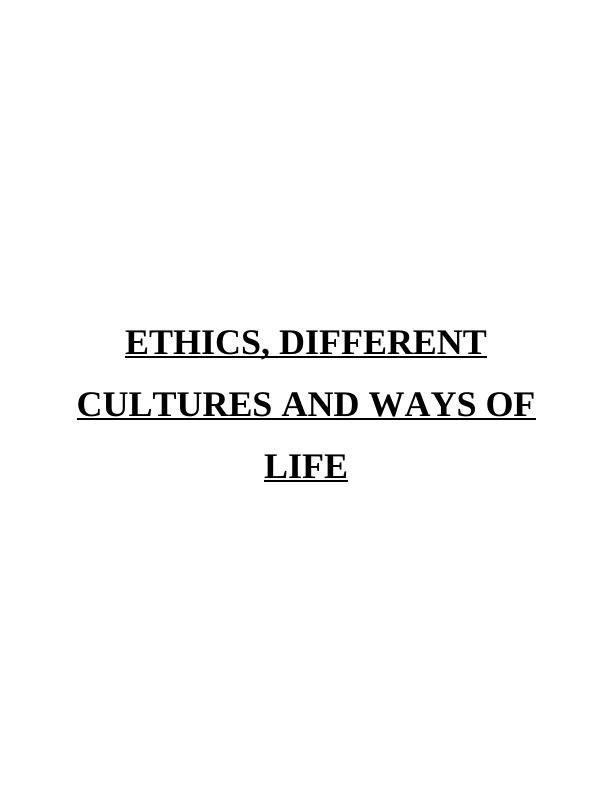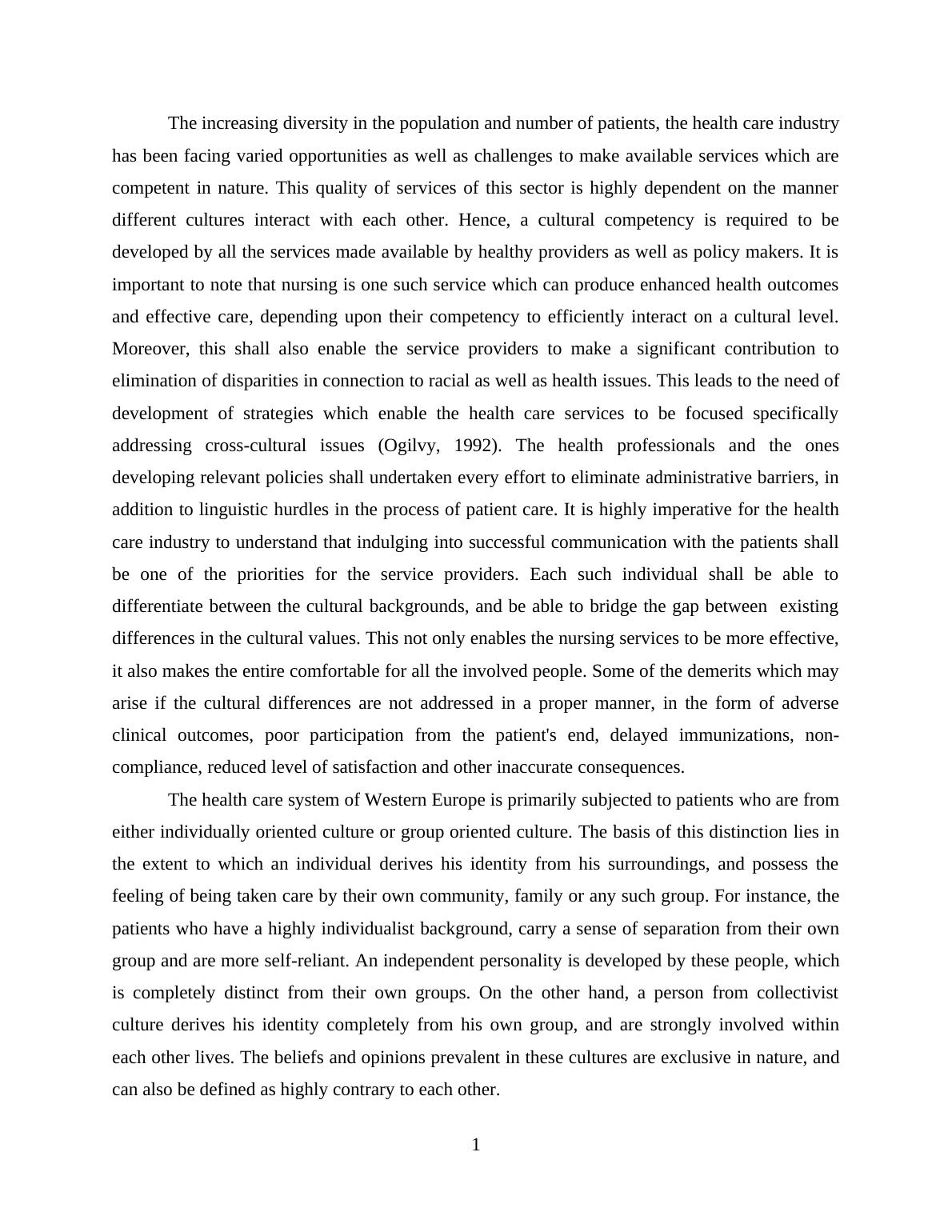Ethics, Different Cultures and Ways of Life
Added on 2020-01-07
4 Pages992 Words704 Views
End of preview
Want to access all the pages? Upload your documents or become a member.
Cultural Safety in Healthcare: Ensuring Respect and Equity in Patient Care
|10
|2690
|435
Impact of Cultural and Linguistic Competence
|19
|4175
|414
Effective Communication and Health Literacy in Culturally Safe Care
|13
|956
|68
ASSIGNMENT ON THE PURNELL MODEL
|7
|1152
|19
Effect of Racism in Health Care
|7
|1059
|78
Cultural Diversity and Transcultural Nursing Theory
|8
|2297
|99


